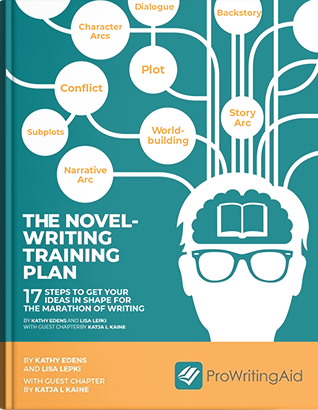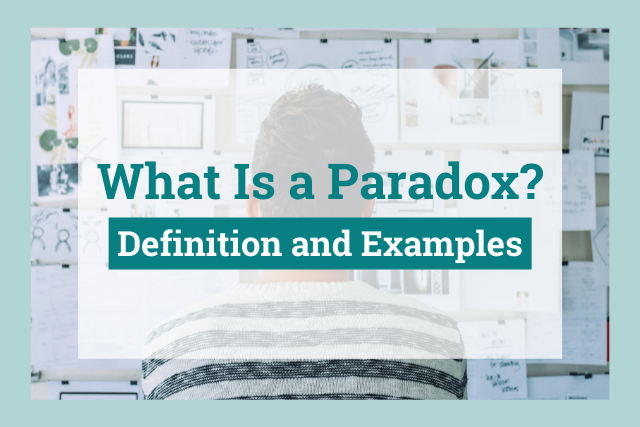
"Save money by spending money."
Wait. What does that mean? How can that possibly be true? That advice seems contradictory but may make sense.
This sentence is an example of a paradox—a statement or argument that seems to contradict itself but can in fact be true.
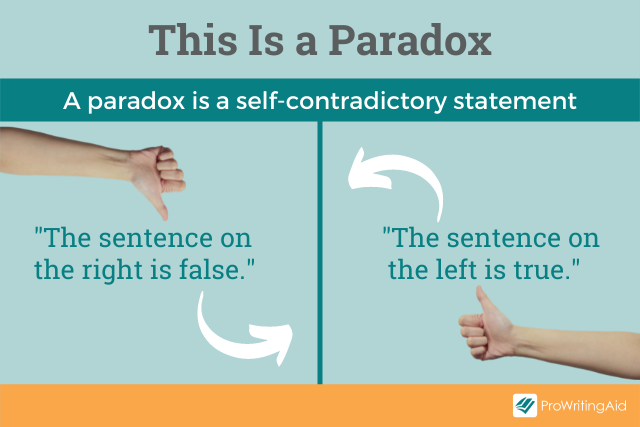
There are logical paradoxes and literary paradoxes. In literature, paradoxes are a powerful literary device. But what are they? And why are they so valuable to readers?
In this article, we give you a solid paradox definition alongside plenty of examples so you can fully understand this rhetorical device.
What Is an Easy Definition of a Paradox?
If you’re already feeling like you’ve just stumbled into a philosophy class, have no fear. The easiest way to understand paradox is through examples, which we’ll cover in great detail in subsequent sections.
But if you need an easy paradox definition, here’s what you need to know.
A paradox is a statement or idea that contradicts itself.
With that simple definition in mind, you’ll be able to grasp the concept of paradox in no time.
What Is a Paradox?
A paradox has different definitions depending on where it’s being used—that’s where it starts getting complicated. These definitions can be tricky, but we’ll try to simplify things for you.
In short, a paradox is a self-contradictory statement or argument.
Sometimes, a paradox seems to contradict itself but it can in fact be true. A paradox defies logic and runs counter to one’s expectations.
A paradox presents conflicting ideas and relates them in a way that forces you to wonder if it’s true or not.
In many cases, a paradox is neither decidedly true nor false and results in circular reasoning.
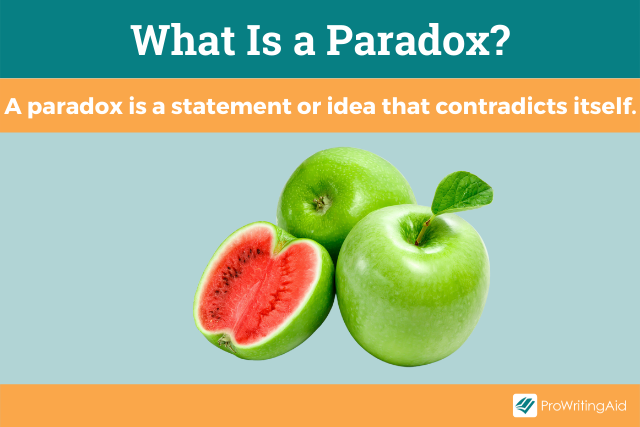
The word origin of paradox comes from the Latin paradoxum, which in turn came from the Greek paradoxos. It’s a combination of the ancient Greek words para and dokein.
Para- is a prefix that means "beyond," while dokein is a verb that means "to think."
Combined, paradoxos, or paradox, means "beyond thinking." A paradox is an idea that forces you to ponder beyond the normal, expected limits of your thinking.
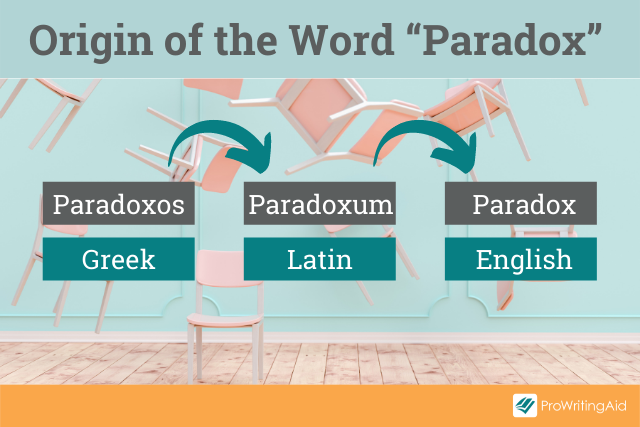
Some paradoxes might sound false at first but have some semblance of truth. For example, you might say, "doing nothing is exhausting."
If you’re doing nothing, you’re exerting no energy, so how can it be exhausting? But think about a day where you just sit and do nothing.
Or imagine a time you’ve been on a trip, and you’re just sitting in a car or a train with nothing to do. At the end of those days, you’re likely more tired than you would be if you’d been busy.
Those are some basic examples of the concept of paradoxes.
But paradoxes can get infinitely more complicated, particularly because paradoxes are used or defined differently depending on who is using them.
Within the fields of logic and rhetoric, paradoxes represent perplexing arguments. Paradoxes in science and mathematics have challenged principles that were accepted as true.
In literature, paradoxes juxtapose two ideas that seem incongruous in order to provide emphasis or deep insight. We’ll get into some examples of these later.
What Is a Logical Paradox?
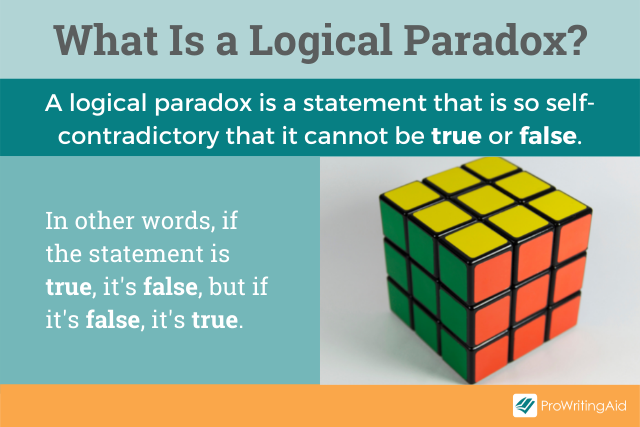
Many people are most familiar with the concept of logical paradoxes.
A logical paradox is a statement that is so self-contradictory that it cannot be true or false. In other words, if the statement is true, it’s false, but if it’s false, it’s true.
Is that making your head spin? Good! That’s the purpose of logical paradoxes. They force us to expand our critical thinking and reasoning skills.
Have you heard the age-old question: "Which came first, the chicken or the egg?" This statement is an example of a logical paradox. It is logically unsolvable, theories of evolution aside.
A chicken is born from an egg, so it stands to reason that an egg would come first. However, the egg is laid by a chicken, so the chicken would need to come first.
That’s a classic example of a logical paradox. Let’s take a look at some examples of logical paradoxes.
What Are Some Examples of a Logical Paradox?
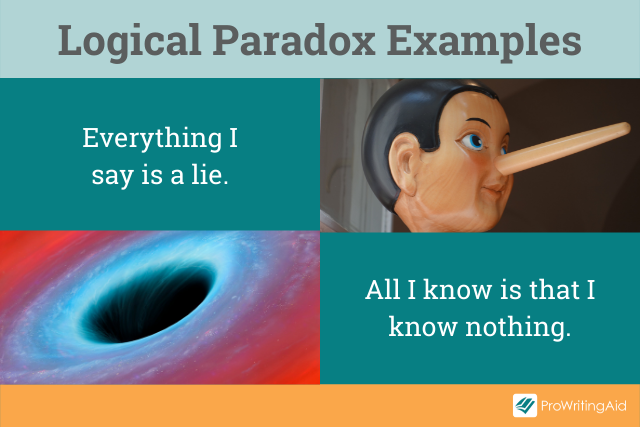
It’s important to have a good grasp of a logical paradox in order to understand how literary paradoxes work.
Before we move onto the literary device of paradox, here are more examples of logical paradoxes.
"All I know is that I know nothing."
This quote is attributed to Socrates, and poses an interesting paradox. If he knows nothing, then he cannot know that he knows nothing.
"Everything I say is a lie."
Am I telling the truth by saying everything I say is a lie? Or am I lying by saying this? This strange paradox is unsolvable.
"Is the answer to this question 'no'?"
This question is unanswerable. If we answer the question "no," then the correct answer would be yes. But if we answer "yes," the correct answer would be no. There is no correct way to answer this paradox.
Now that we’ve got a solid understanding of logical paradoxes, let’s learn what a literary paradox is.
What Is a Paradox in Literature?
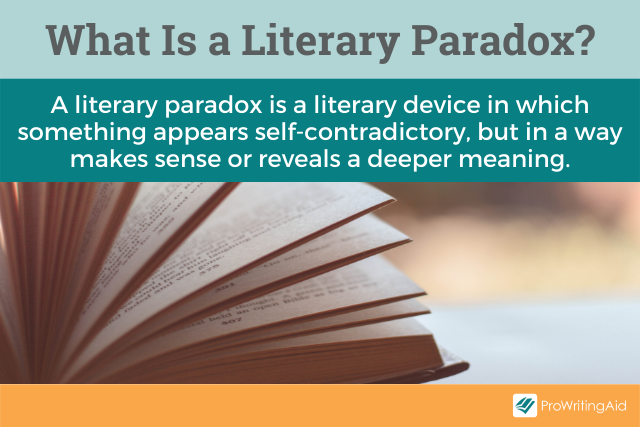
Paradoxes are often used in literature as a poignant device.
A literary paradox is a statement that appears to contradict itself, but upon further rumination, either reveals a deeper meaning or actually makes sense.
Literary paradoxes are often used to illustrate something profound. Authors choose to juxtapose two contradictory ideas in a way that is insightful.
A literary paradox is often related to the overall theme or message of a story and is used to emphasize the story’s deeper meaning.
Paradoxes are tricky to get right. But when an author successfully uses a literary paradox, they are exceptionally poignant.
A paradox is not the only literary device that relies on two conflicting ideas. Paradox is often confused with the rhetorical devices oxymoron, antithesis, and irony.
These literary terms, however, have very distinct meanings and uses.
What Are Some Examples of Paradox in Literature?
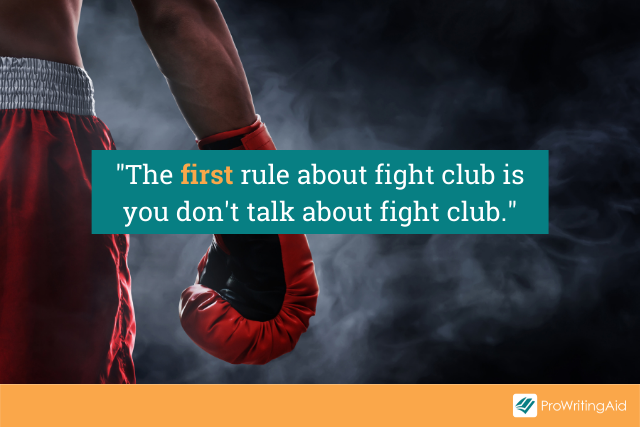
While paradoxes are tricky to use, lots of authors have given it a try. Both logical paradoxes and literary paradoxes appear often in literature. Let's look at some classic examples.
"All animals are equal, but some animals are more equal than others."
This quote is a tenet created by the pigs in George Orwell’s Animal Farm. This statement is a paradox because something cannot be more equal than another.
That goes against the very definition of equal. Even if something could be considered "more equal," the two parts of the sentence contradict each other, creating another layer of the paradox.
The premise of the book itself is paradoxical. The animals want equal rights to the humans, but in their quest for equality, the animals end up in a totalitarian regime that relies on class differences. The apparent paradox of the story is summed up by the quote.
"The first rule about fight club is you don’t talk about fight club."
Before it was a movie with Brad Pitt and Edward Norton, Fight Club was a novel by Chuck Palahniuk.
This is a logical paradox because in order to tell the rules of fight club, you must talk about fight club.
The story contains several larger, thematic literary paradoxes as well. For example, the narrator's key aim is to stop himself from committing an act of terrorism and killing himself, but the main barrier to him doing this is himself.
"I must be cruel only to be kind."
Shakespeare used paradox frequently in his plays. This quote from Hamlet is a literary paradox because Hamlet believes he must murder his uncle to avenge his father and free his mother.
He believes the murder is an act of mercy for his mother, although murder is not generally accepted as an act of kindness.
"To be natural is such a very difficult pose to keep up."
Oscar Wilde was a master of paradox. This quote is from The Importance of Being Earnest.
Acting natural is supposed to be natural, but it’s not natural if you’re having to act it.
This has even greater relevance today with reality TV stars and social media influencers, who often pretend to appear real and natural.
"I’m Nobody! Who are you? Are you—Nobody—too?"
In this poem, Emily Dickinson uses a paradox to explore the concept of identity. By being someone, they cannot be nobody, even though they say they are nobody.
"Death, thou shalt die."
In this Holy Sonnet by John Donne, the poet uses an apparent paradox. Death is not a thing that can literally die, but Donne explores the idea of everlasting life after death.
In this interpretation of the Christian afterlife, the concept of death ceases to exist in heaven.
"'Take some more tea,' the March hare said to Alice, very earnestly.
'I've had nothing yet,' Alice replied in an offended tone, 'so I can’t take more.'
'You mean you can’t take less,' said the Hatter. 'It’s very easy to take more than nothing.'"
Lewis Carroll uses paradoxes throughout Alice’s Adventures in Wonderland. This paradox from the Mad Hatter sounds nonsensical.
How can one take more than nothing? But he is right: if nothing is zero, than anything higher is more. Paradoxes feature heavily in mathematical theory, and Carroll was a mathematician.
"A child asked, 'Can God do everything?' On receiving an affirmative reply, she at once said: 'Then can He make a stone so heavy that He can’t lift it?'"
This is a common example of a paradox used in theological debates. It appears in Henry Dudeney’s The Canterbury Puzzles.
This paradox poses the idea that if God is omnipotent, then he can create a stone so heavy he can’t lift it.
If he can create this stone but not lift it, he is not all-powerful. If he can’t create this stone, he can’t do everything.
"The earth that’s nature’s mother is her tomb;
What is her burying grave, that is her womb..."
This excerpt is another Shakespeare example, this time from Romeo and Juliet.
This paradox is about earth being both a life-giving womb and a tomb. It creates a circular argument that sounds contradictory but is not untrue.
Here are a few other examples of literary paradox that aren’t as easy to sum up in a quote.
The Odyssey
In The Odyssey, Odysseus tells the Cyclops that he is Nobody.
When Odysseus attacks him, the Cyclops says that Nobody is hurting him. This situation is a paradox because obviously someone is hurting him.
Catch-22
Joseph Heller uses paradox throughout his novel Catch-22]. A major paradox is that Yossarian claims to be crazy to get out of fighting in the war.
However, a crazy person would not be sane enough to claim to be crazy for this reason, so he reveals himself as sane and does not get out of duty.
The Grandfather Paradox
Finally, the grandfather paradox often appears in literature and media that deals with time travel.
The idea is that if you travel back in time to kill your grandfather, you will never exist and therefore will not be able to travel back to the future.
How Do You Prevent a Literary Paradox from Confusing Your Reader?
A paradox doesn’t have to confuse your reader if you set it up correctly.
Tie the central idea in your paradox to your story’s main theme. This will allow the reader to already be thinking about the central idea of your paradox before you overtly mention it, like in the Animal Farm example earlier.
If you can get the pacing and structure right, paradoxes and complex elements will seamlessly blend with your main storyline. If you have to spend pages explaining a paradox or why it is there, it’s probably not worth including.
ProWritingAid’s Pacing report highlights slow moving sections of your novel to help you balance action with exposition. When you introduce your paradox, make sure to surround it with some action or dialogue to keep things moving for your reader.
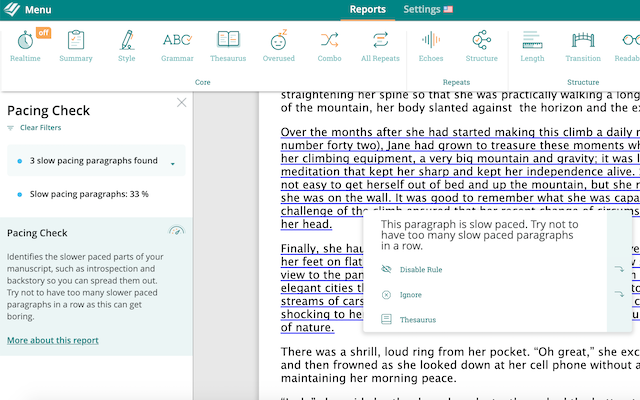
Try the Pacing Report with a free account.
How Do Paradoxes Differ from Other Literary Devices?
Wondering how a paradox is similar to or different from other writing techniques like oxymoron? Let’s explore.
What Is the Difference Between an Oxymoron and a Paradox?
A literary paradox is the juxtaposition of ideas. It can be made up of whole phrases and sentences, or even larger elements of a story.
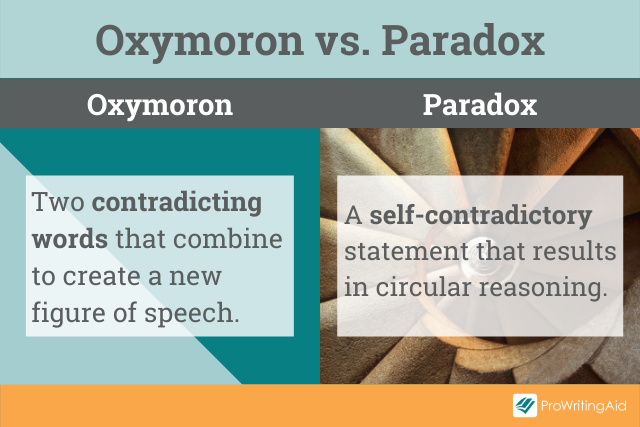
An oxymoron is a figure of speech made up of two contradictory words. It does not result in the same circular reasoning as a paradox. Here are some examples of oxymoron:
- Jumbo shrimp
- Friendly fire
- Living history
- Magical realism
- Fake news
Oxymorons aren’t inherently true or untrue. They create a new meaning altogether.
What Is the Difference Between an Antithesis and a Paradox?
The literary device antithesis also uses two opposing ideas.
However, while a paradox is more about using logic and reasoning to illustrate an idea, an antithesis is about using sentence structure to illustrate a point.
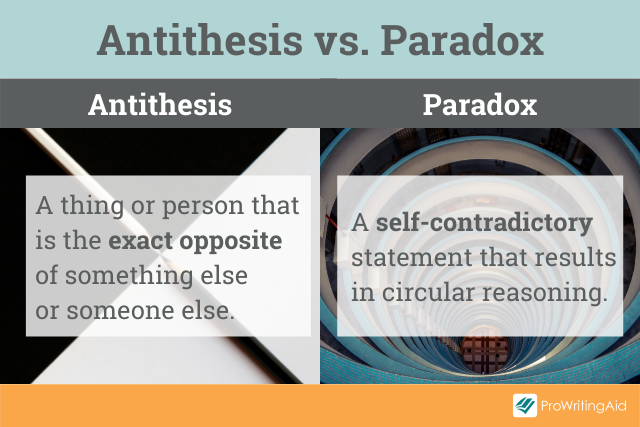
Antithesis takes two unrelated or opposing ideas, then uses parallel sentence structure to connect them. It's a common rhetorical device used in speeches.
Here are some examples of antithesis:
- You win some, you lose some
- If you fail to plan, then you plan to fail
- One person’s trash is another person’s treasure
- Easy come, easy go
- A day late and a dollar short
Antithesis doesn’t create a debate of truth in the same way a paradox does. It’s mostly used to create a catchy, memorable phrase to emphasize a point.
What Is the Difference Between Irony and Paradox?
Irony is another literary device that is often confused with a paradox. Irony does involve conflicting words, phrases, or ideas, but it is not self-contradictory in the same way as a paradox.
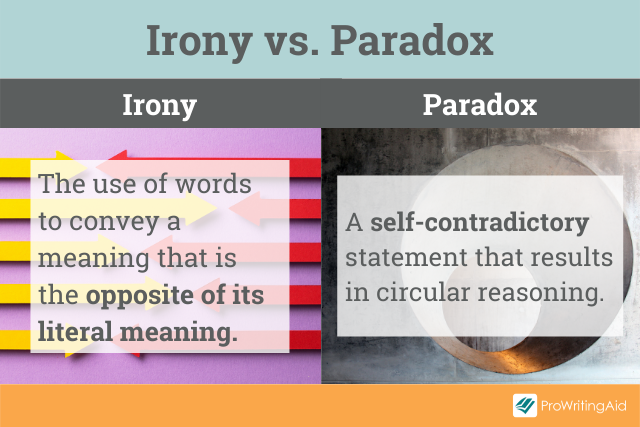
Irony uses contradiction to subvert what is expected in a story. The contradiction serves to show a difference between what the reader expects versus what is actually occurring in the story.
There are three types of irony.
1) Dramatic irony is when the audience is aware of a situation but the characters are not.
2) Verbal irony is when something is said that does not match the situation. For example, you might say, "I hope we can find a seat" when you walk into an empty venue.
3) Situational irony is when a situation is unexpected, like a fire station catching fire or a tow truck breaking down and needing to be towed.
None of the three types of irony are the same as paradox because they are not necessarily self-contradictory.
What Exactly Is a Paradox?
Paradoxes are a powerful device that force you to think deeply about a statement or argument.
Used in different disciplines, paradoxes create opportunities for engaging in philosophical debate.
Can you think of any other examples of paradox we should add to this article?

